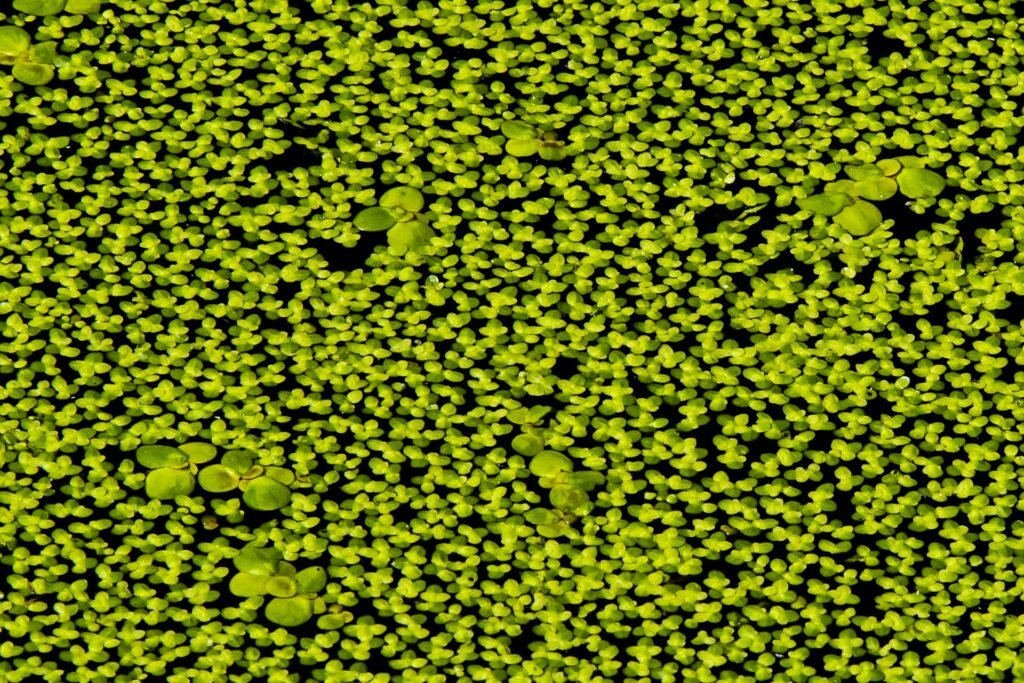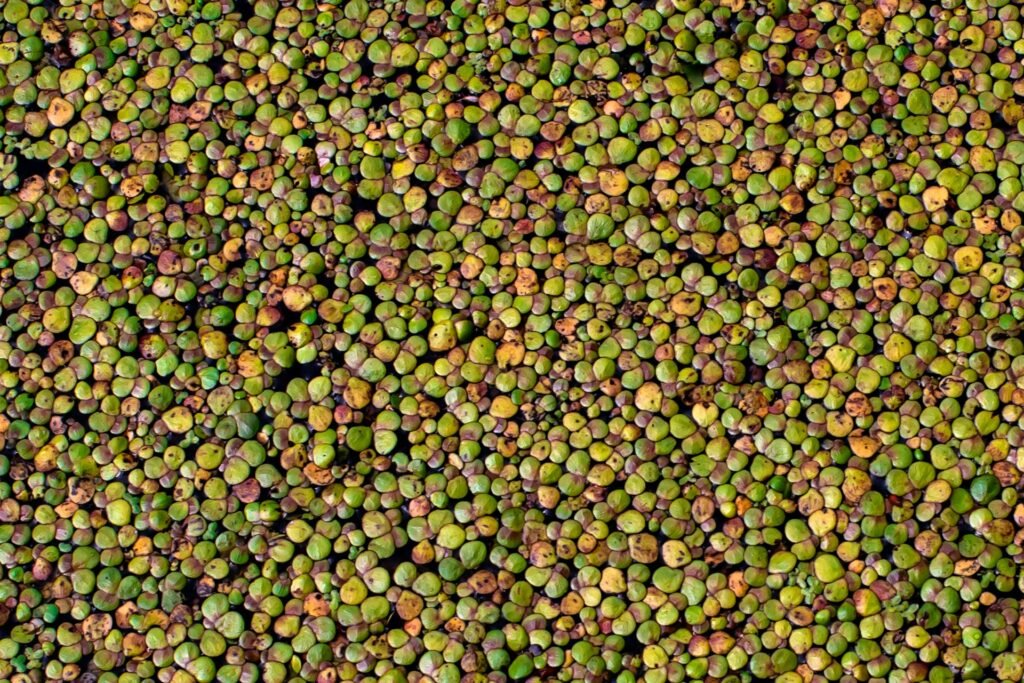Hello, plant lovers! Today, we’re going to dive into the world of a tiny but mighty plant called Wolffia globosa, also known as Duckweed. This little green gem has some amazing uses, benefits, and a few drawbacks too. So, let’s get started!What is Duckweed?
What is Duckweed?
Wolffia globosa is a teeny-tiny plant that floats on water. It’s so small that you might not even notice it at first. But don’t let its size fool you! This plant is packed with possibilities for your health, nutrition, and even the environment.
Duckweed might look like a simple green speck floating on water, but it’s much more than meets the eye. It’s one of the smallest flowering plants in the world, belonging to the Lemnaceae family. You can often spot it covering the surface of ponds, lakes, and slow-moving streams, forming a green carpet over the water.

Smaller Than a Raindrop, Big on Survival
Duckweed isn’t your typical leafy green. It’s actually a flowering plant, but it’s the size of a grain of pepper – or even smaller! It floats on the surface of still or slow-moving water, kind of like a miniature green lily pad. Despite its size, duckweed is a champion survivor. It can reproduce super fast, doubling its population in just a few days! That’s why you might see ponds completely covered in a green film – that’s most likely a duckweed takeover!
Friend or Foe in the Fishbowl?
For some folks, duckweed is an aquarium nightmare. It can take over a fish tank quickly, blocking out light and making it hard for other plants to thrive. But here’s the surprising part – fish actually love to munch on duckweed! It’s a great source of protein and vitamins for them.
The Good Side – Uses and Benefits
Duckweed is a nutritional powerhouse. It’s full of vitamins like A, C, E, K, and many B vitamins, including B12. It also has minerals like phosphorus, potassium, calcium, magnesium, iron, and zinc. Plus, it’s a great source of protein. In fact, its protein content by dry weight is even higher than soy and lentils!
But that’s not all. Duckweed also has omega-3 and omega-6 fatty acids, and antioxidants. These are all important for keeping our bodies healthy. Some research even suggests that it may help reduce total cholesterol levels.
Duckweed might be small, but scientists are starting to discover its big potential. Because it grows so fast and absorbs nutrients from the water, it could be used to clean up polluted waterways. Researchers are also exploring ways to use duckweed as a biofuel or even a superfood for humans!
- Nutritional Powerhouse – Don’t let its size fool you; duckweed is a nutritional powerhouse! It’s rich in protein, vitamins, and minerals, making it a valuable food source for both humans and animals.
- Environmental Cleanser – Duckweed plays a crucial role in maintaining water quality. It absorbs excess nutrients like nitrogen and phosphorus, which can otherwise lead to harmful algae blooms. By doing so, it helps to keep aquatic ecosystems balanced and healthy.
- Biofuel Potential – Scientists are exploring duckweed as a potential source of biofuel. Its rapid growth rate and high lipid content make it a promising candidate for renewable energy production.
- Natural Wastewater Treatment – Duckweed has been used in wastewater treatment systems to remove pollutants and improve water quality. Its ability to thrive in nutrient-rich environments makes it an effective tool for cleaning up contaminated water bodies.

The Not-So-Good Side – Drawbacks
While duckweed offers numerous benefits, it’s essential to consider potential drawbacks:
- Invasive Potential – In some cases, duckweed can grow too quickly and become invasive, forming dense mats that choke waterways and harm native plants and animals.
- Limited Palatability – While duckweed is nutritious, not everyone finds it palatable. Some animals may avoid eating it, which can limit its effectiveness as a food source in certain ecosystems.
- Habitat Alteration – Dense duckweed mats can alter habitat conditions, affecting water flow, oxygen levels, and sunlight penetration, which may impact other aquatic organisms.
In Summary
So there you have it! The Wolffia globosa, or Duckweed, is a tiny plant with big potential. It’s packed with nutrients and has some amazing benefits. But like all things in nature, it also has a few drawbacks. Remember, if you ever see Duckweed floating on a pond, now you’ll know just how special it is!
Stay curious and keep exploring the fascinating world of nature!
Affiliate Links
Related Reading
Wolffia Globosa – Watermeal Plant Care & Growth Guide. https://plantiago.com/wolffia-globosa/.
Mankai – Ultimate Guide To This Supergreen – Forbes Health. https://www.forbes.com/health/supplements/what-is-mankai/.
Duckweeds – their utilization, metabolites and cultivation. https://applbiolchem.springeropen.com/articles/10.1186/s13765-021-00644-z.

Leave a Reply